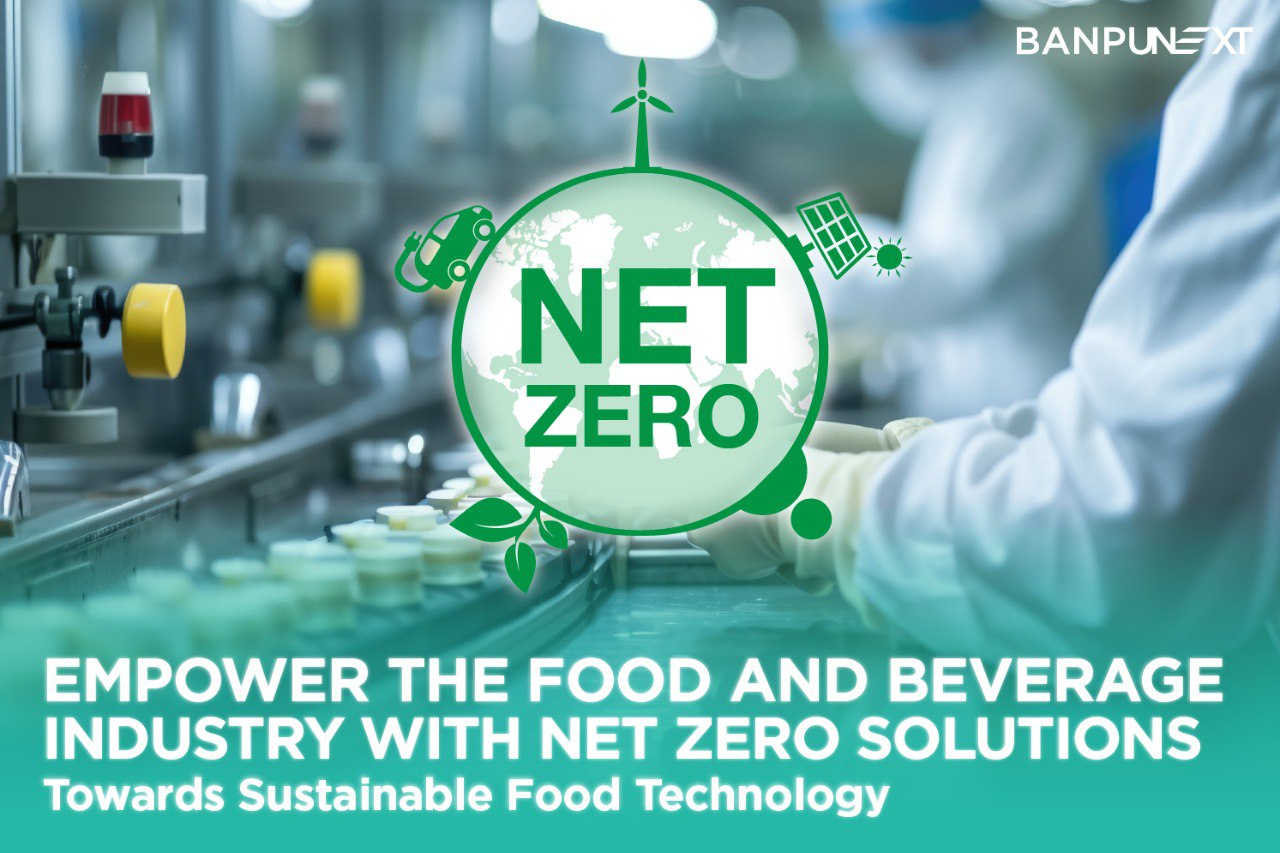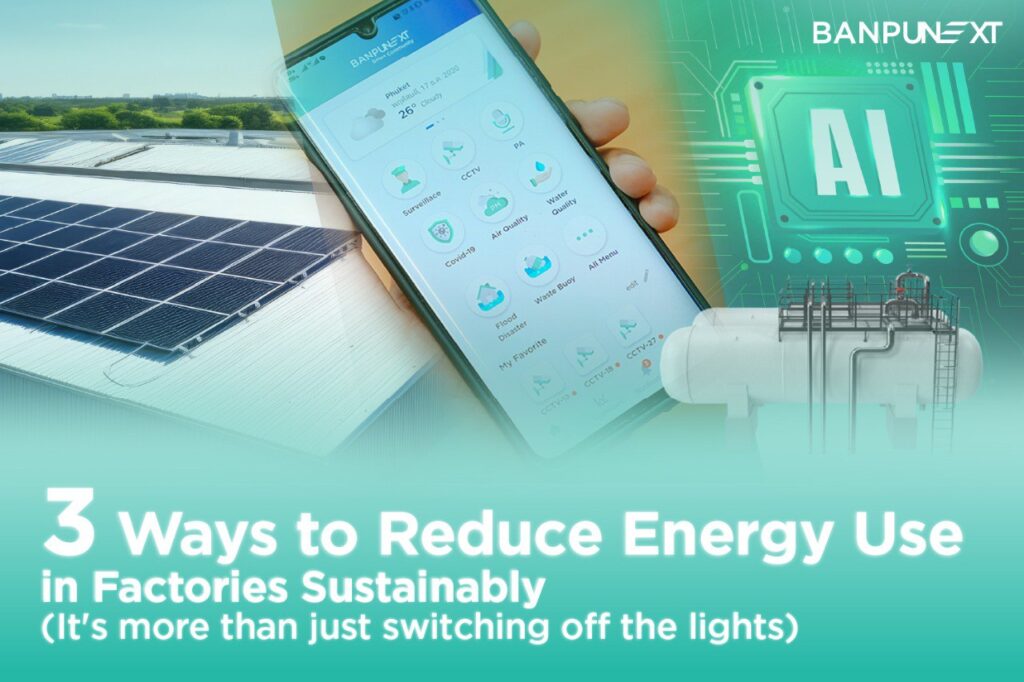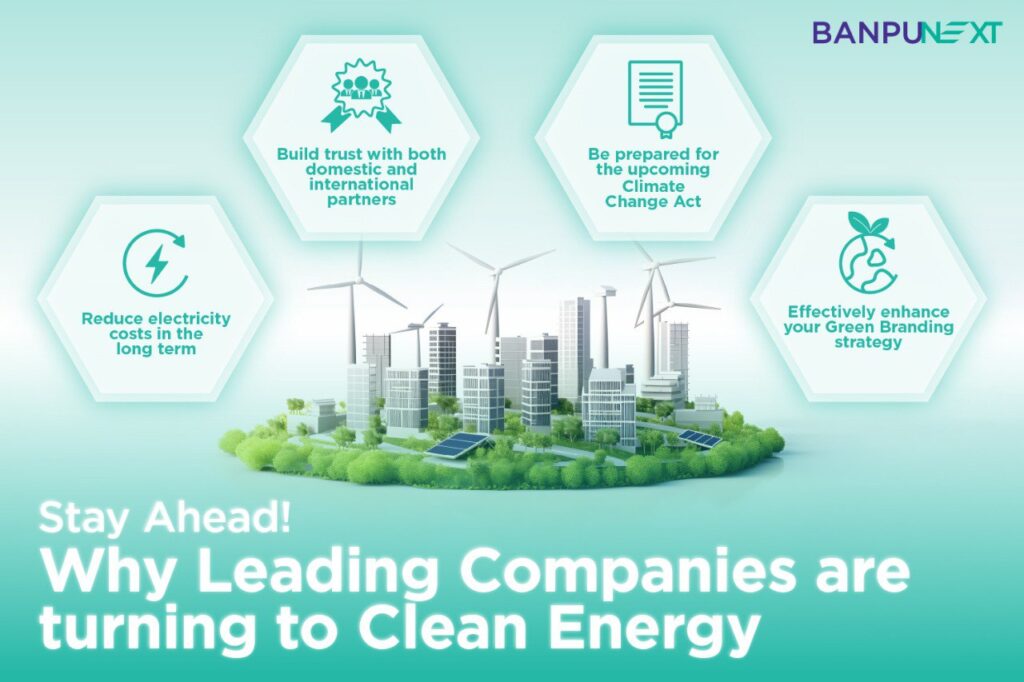As Food Technology rapidly reshapes the food and beverage industry, sustainability has become a critical priority that businesses can no longer overlook. Among the most pressing issues is energy—a key factor impacting both production costs and carbon emissions, which in turn affect brand image and consumer trust. Solar energy is no longer just an alternative; it is now a strategic imperative for modern Food Tech enterprises aiming to achieve concrete progress toward Net Zero goals.
4 Energy Crises Threatening Profits in Thailand’s Food & Beverage Industry
Thailand’s food and beverage sector is facing rising energy challenges that threaten profitability and competitiveness. Without timely adaptation, businesses risk losing ground in both domestic and international markets.
- Soaring Electricity Costs Are Squeezing Profits
Energy costs—especially electricity—continue to surge, significantly cutting into margins for food and beverage manufacturers. Yet raising retail prices remains difficult due to fierce competition and weakened consumer purchasing power. - Cooling Systems Running 24 Hours Consume Massive Energy
Food and beverage factories operate refrigeration systems (chillers/freezers) around the clock. Even an hour of downtime could cause product losses worth millions of baht. - Rising ESG Pressure from All Stakeholders
Global customers, supply chains, and investors are demanding carbon reduction efforts, especially from global brands and major retailers now selecting suppliers based on sustainability. Businesses that fail to adapt risk losing orders to greener competitors. - Strict Carbon Regulations in Key Export Markets
The EU and other trading partners are enforcing carbon border taxes (CBAM) and stricter carbon footprint disclosures. Thai exporters that can’t cut emissions will face higher costs and reduced competitiveness.
Transitioning from conventional energy to clean energy business models is not just a branding exercise—it is a strategic necessity for the long-term survival and sustainable growth of Thailand’s food and beverage industry.
Case Study: NSL Foods on the Path to Carbon Reduction
NSL Foods, a leading producer and distributor of bakery items, ready-to-eat meals, and snacks, partnered with Banpu NEXT to implement a comprehensive Net Zero energy solution. By installing a solar power system with a total capacity of over 2.2 MW, the company has reduced its annual electricity costs by more than X million baht and cut CO2 emissions by over 1,600 tons.
This initiative is a key component of NSL’s strategy to achieve Carbon Neutrality by 2050, aligning with the UN Sustainable Development Goals (SDGs) in clean energy, climate action, and building partnerships for sustainable development.
Net Zero Solutions for the Food & Beverage Industry by Banpu NEXT
Banpu NEXT is your trusted long-term energy partner, empowering food and beverage businesses to transition toward truly sustainable Food Tech through comprehensive Net Zero Solutions. Our integrated services include:
1. End-to-End Net Zero Strategy Consulting
We provide expert guidance and support in calculating your organization’s carbon footprint and developing a holistic Net Zero roadmap, the services include:
- Greenhouse gas emissions assessments
- Strategic Net Zero planning
- Development of carbon reduction initiatives and carbon credit sales
- Continuous monitoring, reporting, and performance improvement
- Communication support for ESG evaluations to enhance your ESG Rating
These solutions are designed to help organizations achieve their Net Zero targets efficiently and sustainably.
2. Comprehensive Solar Power Installation Services
Turn unused space into a source of clean energy with a full suite of solar installation services. Choose from:
- Solar Rooftop
- Solar Carport
- Floating Solar
All systems include real-time power generation monitoring via digital platforms, 24 hours after-sales support, and mobile app access for performance tracking and system management.
3. Smart Chiller System Installation
Upgrade your cooling operations—a critical component of the food and beverage sector—with AI-powered central chiller systems using environmentally friendly refrigerants. The smart system adjusts cooling output based on real-time demand, maintaining precise temperatures to preserve product quality while reducing unnecessary energy use and significantly cutting costs.
4. All-in-One EV Fleet Solutions
Transform your logistics and transportation operations with comprehensive EV Fleet Solutions, which include:
- Commercial EV Fleet Leasing – Flexible short- and long-term leasing options for electric commercial vehicles
- EV Fleet Stations – High-speed charging infrastructure compatible with all types of large EVs
- Digital Platform – AI-driven fleet management systems to optimize efficiency and reduce operational costs
Elevate Your Food Business into the New Era of Sustainable Food Tech
Investing in clean energy solutions with Banpu NEXT not only reduces costs and environmental impact, but also strengthens your long-term competitive edge—by ensuring regulatory compliance, meeting consumer expectations, and preparing for a future where sustainability is key to success.
Contact Banpu NEXT and Step into the Sustainable Future of Food Tech Today!







